In this week’s review of court judgements, we look at the Supreme Court’s observations on election freebies, reservations in scheduled areas, Delhi High Court’s order on evictions and the judicial limitations of the National Commission for Scheduled Castes, and the Madras High Court’s order regarding the domestic violence act.
SC: No political party would oppose freebies. These days everyone wants freebies. Constitutes expert body of stakeholders on issue of election ‘freebies.’
The Apex Court was hearing a public interest litigation filed by the petitioner on the issue of election freebies by political parties. It was filed by Ashwani Upadhyay, seeking the directions of the apex court to issue directions to deregister errant political parties.
In Ashwini Kumar Upadhyay vs. Union of India & Anr., the petitioner contended that irrational freebies violate the purity of electoral processes, and unduly influence voter behaviour thereby distorting the level playing field in the electoral process. The petition sought a ban on such political favour seeking populist measures to preserve democratic values and ethics.
The petitioner also pointed out that the Supreme Court’s Judgement in S. Subramaniam Balaji vs. The Government of Tamil Nadu and Ors. gave effect to the Election Commission’s guidelines on electoral freebies had no effect on the political parties.
The Chief Justice of India remarked that the issue of freebies has become more serious now, and the parties are going beyond their regular budgets to accommodate freebies. But the CJI was sceptical about the legality of the issue and the role of the judiciary in such issues.
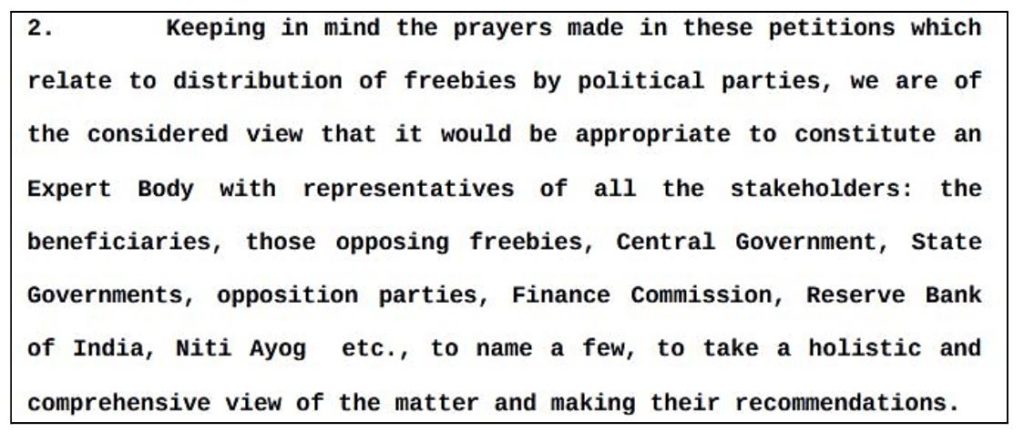
After hearing the counsel, petitioners and Election Commission of India, the bench remarked that political parties would not oppose freebies, and thereby it feels appropriate for the judiciary to form an expert body with all the stakeholders to comprehensively consider the issue and make suitable recommendations. It also directed the parties to suggest names for the constitution of such an expert body.
SC: Providing 100% reservation for local residents of Scheduled districts/areas violates Indian Constitution, upholds the Judgement of High Court quashing the Government’s notification
In Satyajit Kumar & Ors. vs. The State of Jharkhand & Ors, the Supreme Court declared that the notification for 100% local reservation in Scheduled Areas is unconstitutional and upheld the High Court’s judgement.
The bench comprising of Justice MR Shah and Justice BV Nagarathna was hearing the State Government’s appeal petitions against the judgement of the High Court. The State Government’s argument relied on the powers of the Governor, who can authorise the exemption of the application of any Parliament or State law.
The bench relied on the 5 judge constitution bench judgement of the apex court in Chebrolu Leela Prasad Rao & Ors. vs. State of Andhra Pradesh & Ors. , in which it struck down a government order that provided absolute reservations for ST teachers. In the same case, the court remarked that reservations are constitutionally valid as long as they do not cross 50%, and the idea of the reservation is not to be proportionate but adequate.
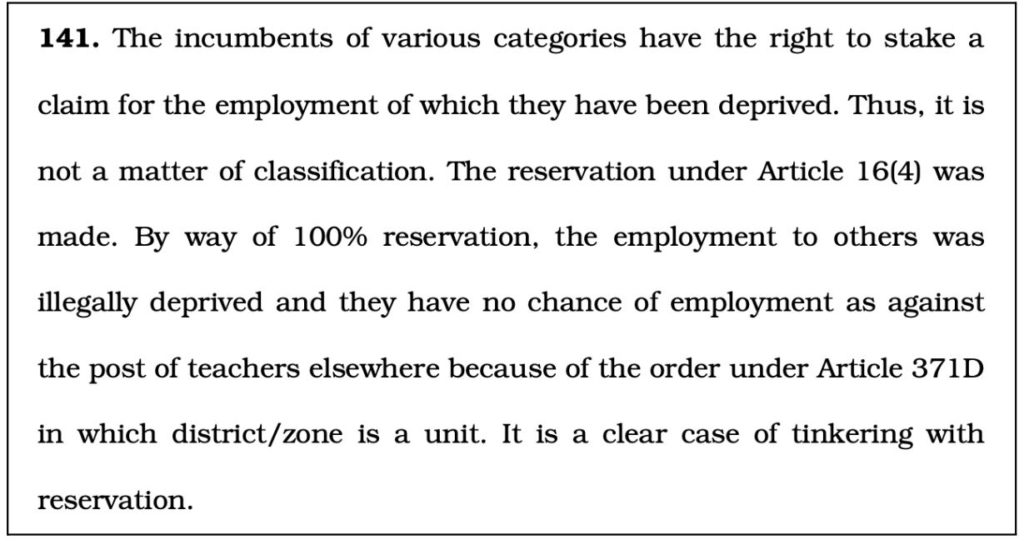
The constitution bench also remarked that no law prevents teachers from other categories to teach in the scheduled areas. The logic behind such an order considering the high absenteeism in primary schools is naïve.
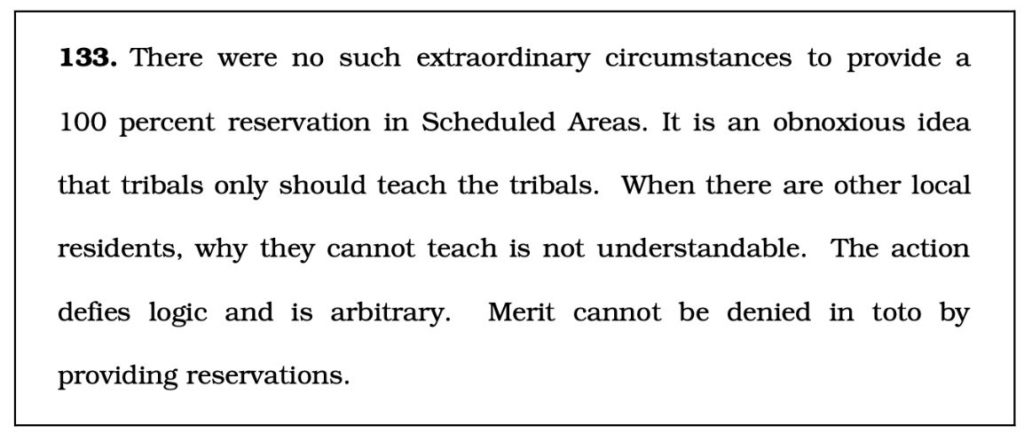
The apex court in the Chebrolu Leela Prasad case also held that the power of Governors extended to only the parliamentary or State legislations, and not sub-ordinate legislations.
Applying the above case in the present case, the apex court reaffirmed the judgement of the High Court of Jharkhand and accordingly quashed the government’s notification of 100% reservations for locals in Scheduled areas.
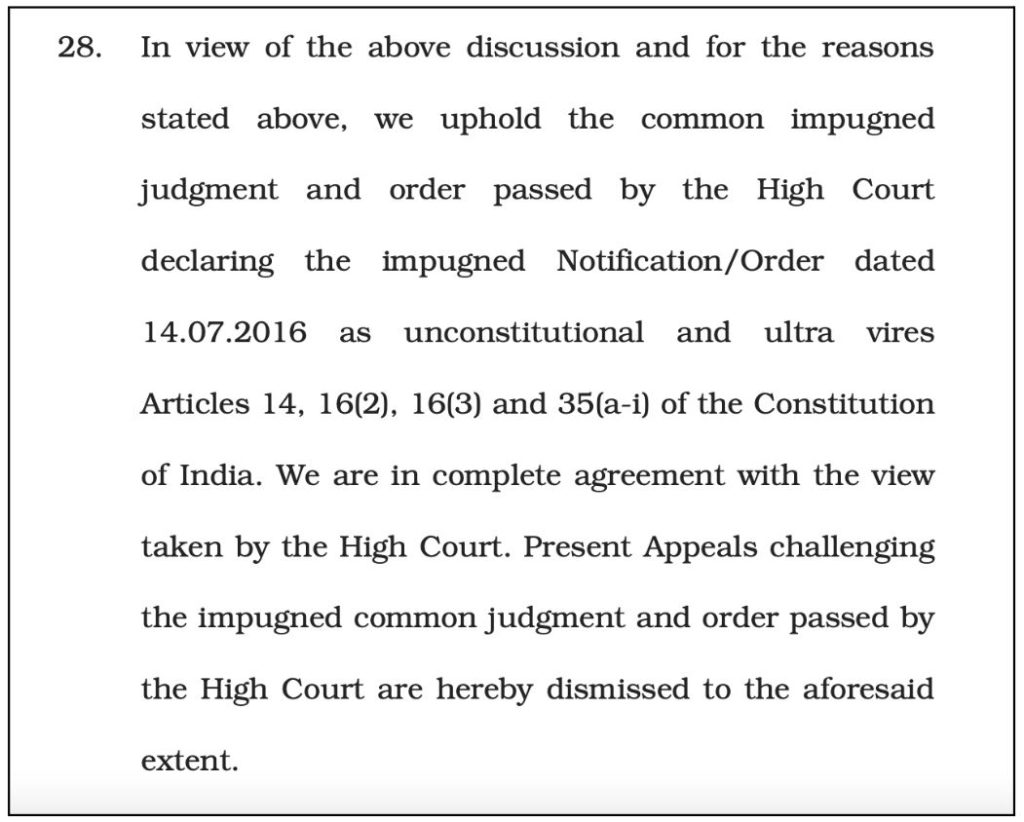
Delhi HC: National Commission for Scheduled Castes is not equivalent to Civil Court
The Delhi High Court in National Small Industries Corporation Ltd. vs. National Commission for Scheduled Castes & Ors. held that the National Commission for Scheduled Castes is not equivalent to a civil court and cannot issue directions after deciding the rights of the parties.
The High Court was hearing a petition challenging the order of the National Commission for Scheduled Castes (NCSC), which directed that the respondents be promoted to the post of General Manager (Senior Grade) with a retrospective date, along with asking the petitioner to review the DPC.
The petitioner held that the commission had exceeded its authority in its orders while it has no such powers under the Articles 338 (5) and 338 (8) of the Indian Constitution. The petitioner relied on the judgement of the apex court in All India Indian Overseas Bank Scheduled Castes and Scheduled Tribes Employees’ Welfare Association and others vs. Union of India and others, where it held that the commission has no powers to grant injunctions, both permanent and temporary. The apex court also held that, the procedural powers of the commission in the capacity of civil court is for limited purposes only.
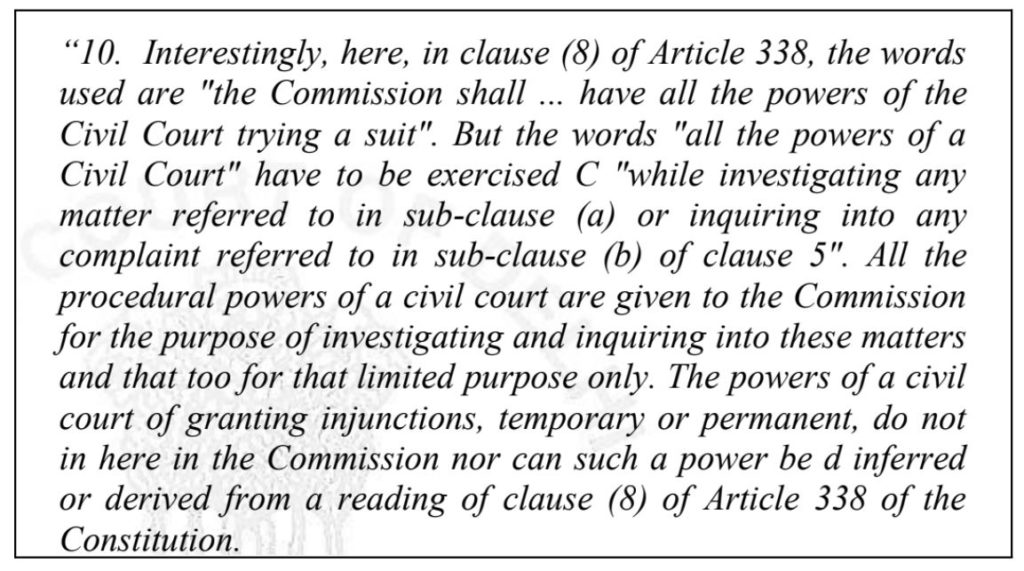
Relying on the above case, the Delhi HC held that merely because the commission possesses the powers of a civil court in investigating and receiving evidence on affidavits, it does not mean that the Commission is equivalent to the Civil Court, and it cannot issue directions after deciding the rights of the parties.
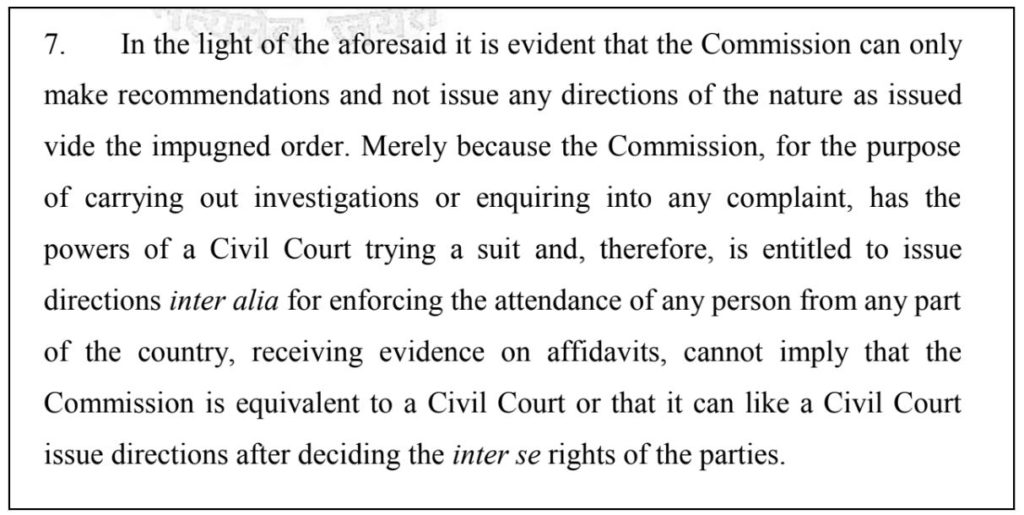
Delhi HC: A reasonable period has to be given to such persons and temporary location has to be provided before any demolition activities
In Shakarpur Slum Union vs. DDA & Ors, the Delhi High Court observed that any person cannot be evicted early in the morning or late in the evening with a bulldozer, without providing them notice and reasonable time, thereby rendering them completely homeless.
The court was hearing a petition filed by the Shakarpur Slum Union seeking directions to the Delhi Development Authority (DDA) to suspend further demolitions and maintain the status quo till the procedural requirements of the Delhi Urban Shelter Improvement Board (DUSIB) policy are met.
The court relied on the guidelines enshrined in the Sudhama Singh and Others vs. Government of Delhi and Anr., and Ajay Maken & Ors. vs. Government of India & Ors. regarding the rehabilitation of the slum dwellers. In Sudhama Singh case, the Court held that slum dwellers are entitled for rehabilitation and relocation and the state must ensure the basic amenities and dignity and rights of lives of citizens living in jhuggis. In Ajay Maken case, the HC held that the right to housing is a collection of rights that extends beyond the need for a simple roof over one’s head. In addition to the right to clean drinking water, sanitary sewers, and transportation facilities, it also covers the right to a means of subsistence, health, education, and food. It further held that

Relying on the above judgements, the Delhi HC held that
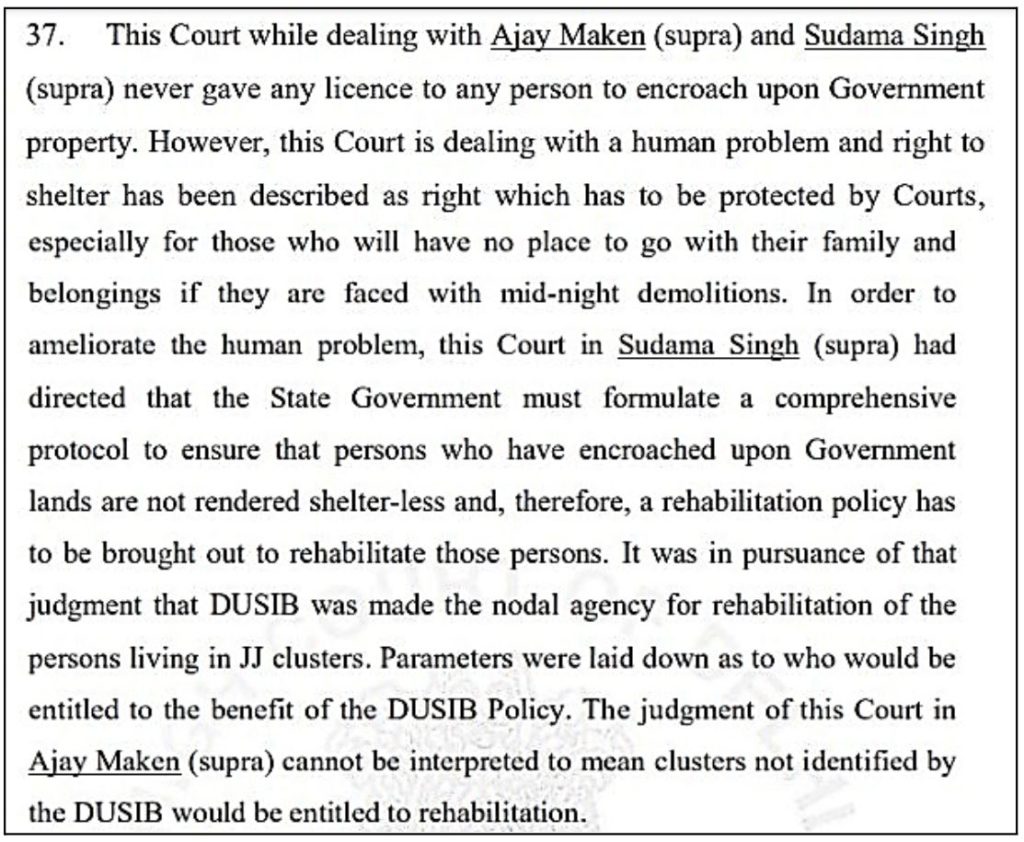
Further, the court remarked that no demolition shall be carried out before and after regular day hours, prior notice, temporary location, and reasonable time must be provided to them. And the court also expected DDA not to carry out demolitions at the end of the academic year or during monsoons.
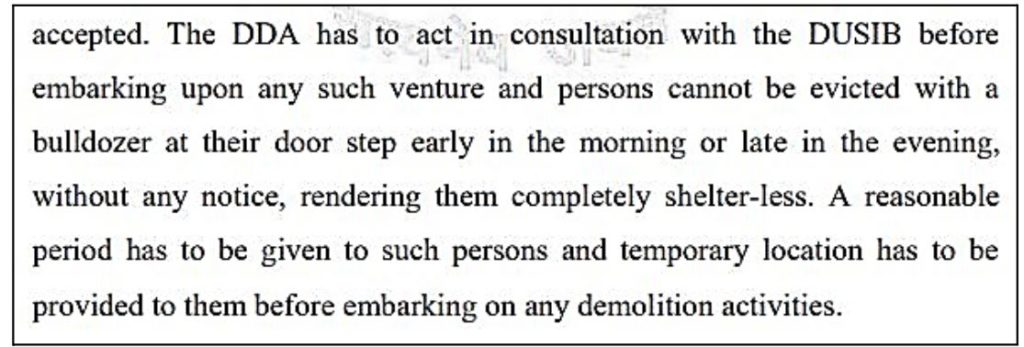
Madras HC: Domestic Violence Act proceedings are civil in nature, victim’s consent needed to transfer them to family court
In P.Ganesan vs. M.Revathy Prema Rubarani, the Madras High Court held that the proceedings under the Domestic violence act (DV act) are of civil nature, and the intent of the act is to make civil remedies available to the victims of domestic violence.
The division bench of the High Court was hearing review petitions and questions regarding the references made by other single judge benches. The references involved five questions.
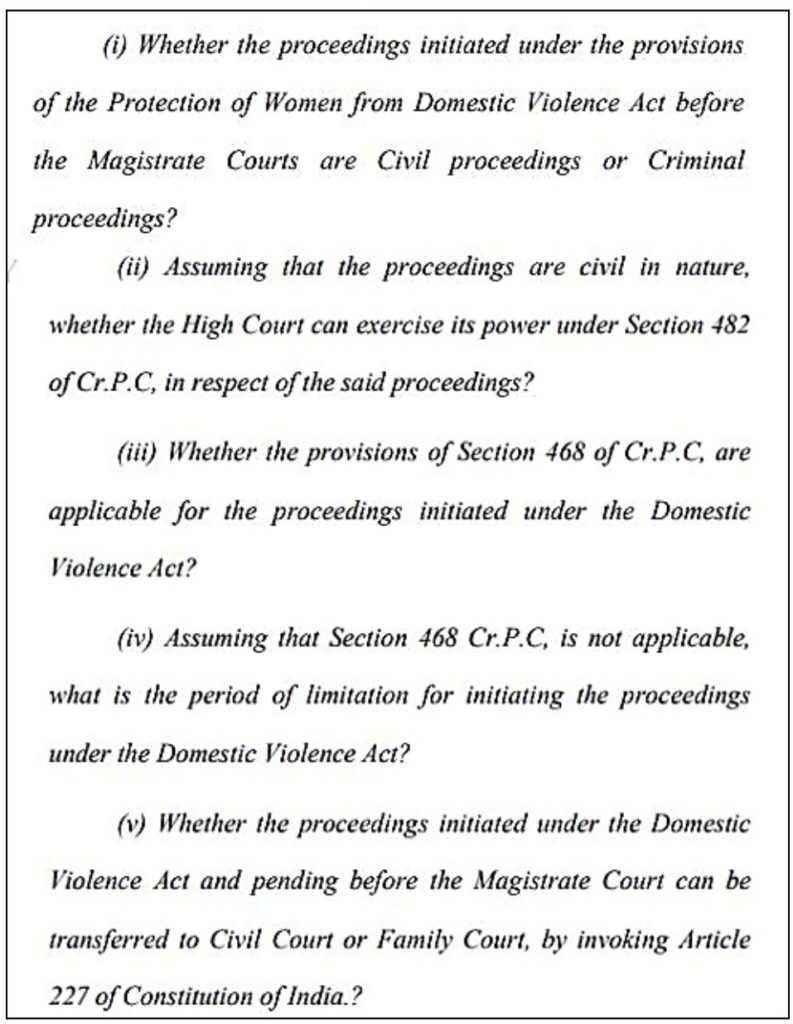
For determining the nature of the proceedings, the High Court relied on the apex court’s decision in Kunapareddy vs. Kunapareddy Swarna Kumari, where it affirmed that the DV act proceedings are civil in nature, relying on the intent and the statement of objects and reasons of the DV act.
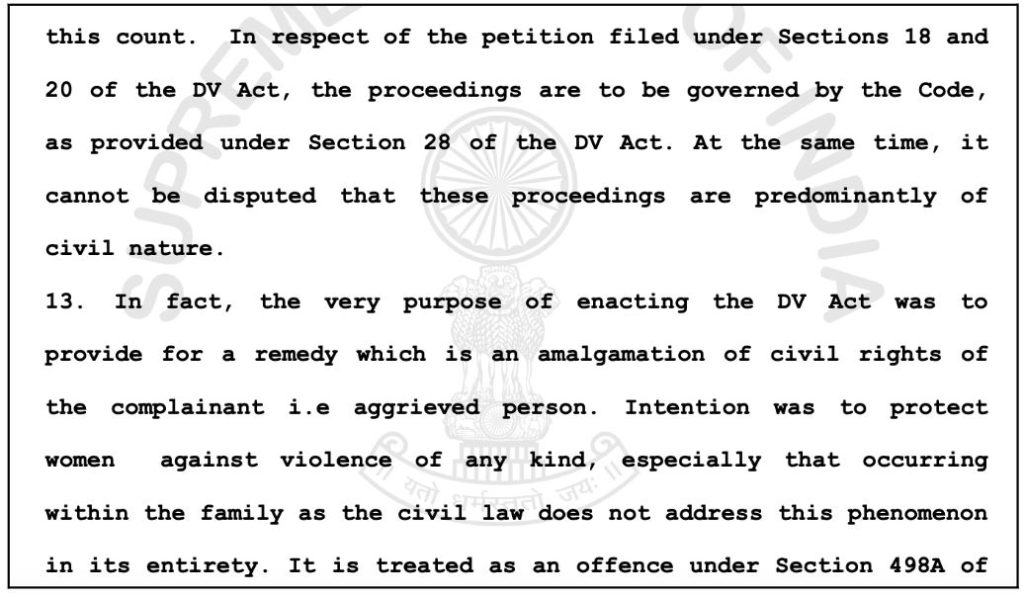
On the question of applicability of Section 468 of Cr.P.C, the court looked at the Kamatchi vs. Lakshmi Narayanan judgement, it was held that
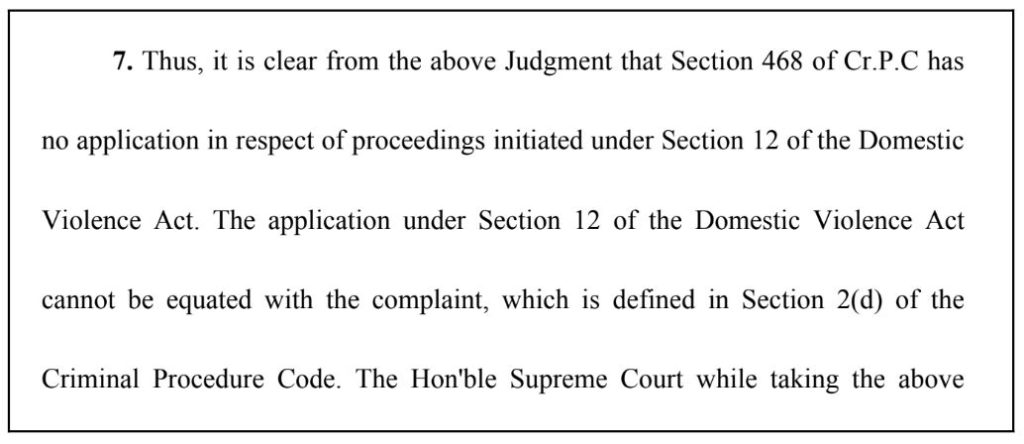
Regarding the period of limitation, the High Court held that
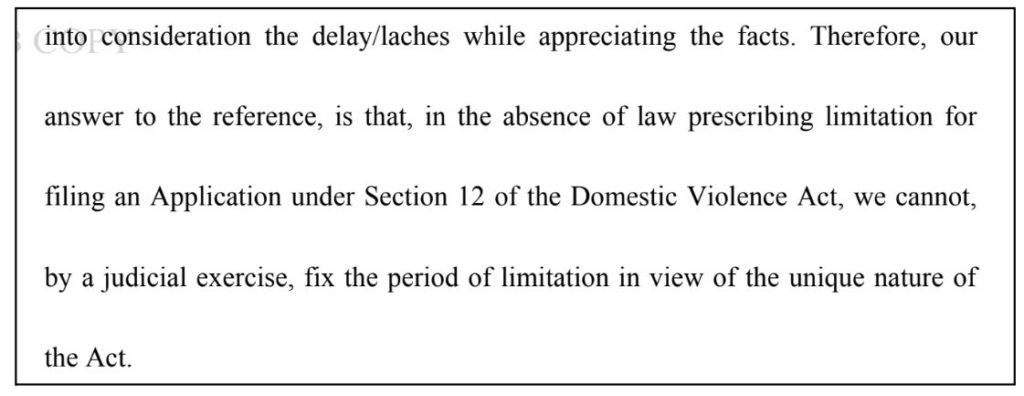
On the question of transferability of the proceedings to a civil court or family court, the High Court held that
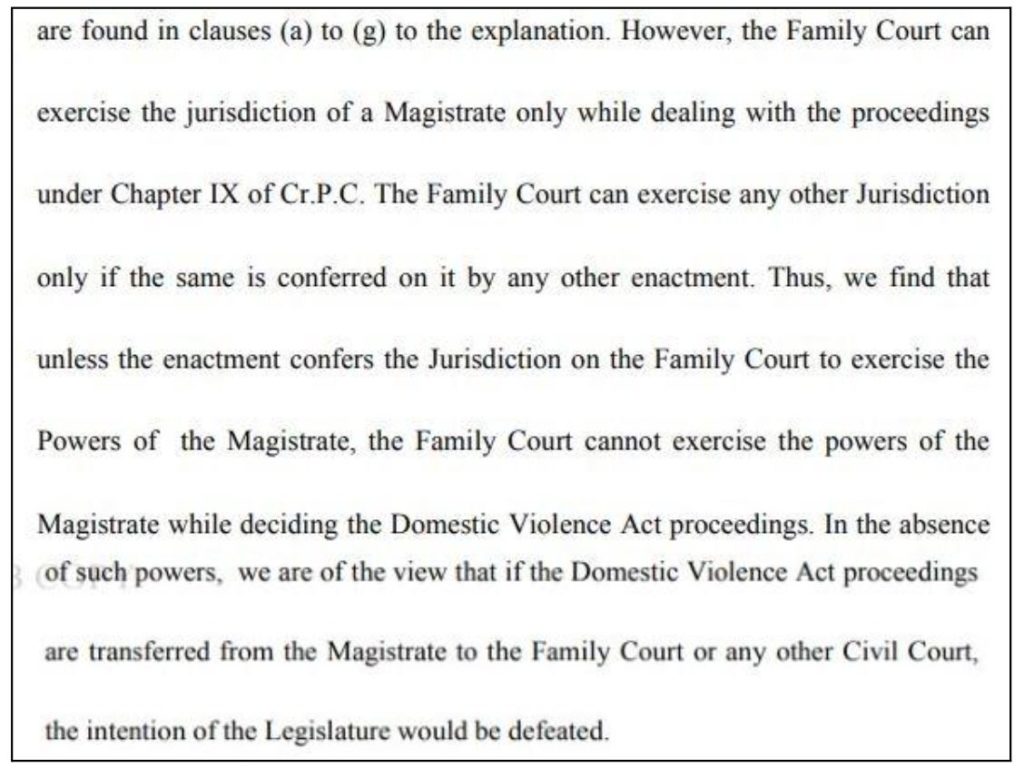
On the question of whether the High Court can exercise its power under Section 482 Cr. P.C, the High Court held that Section 482 Cr. P.C petition is maintainable in domestic violence act proceedings, and the High Court can exercise its power under the above section.



